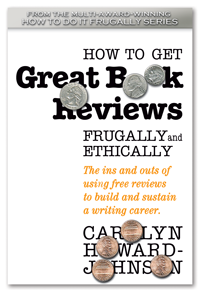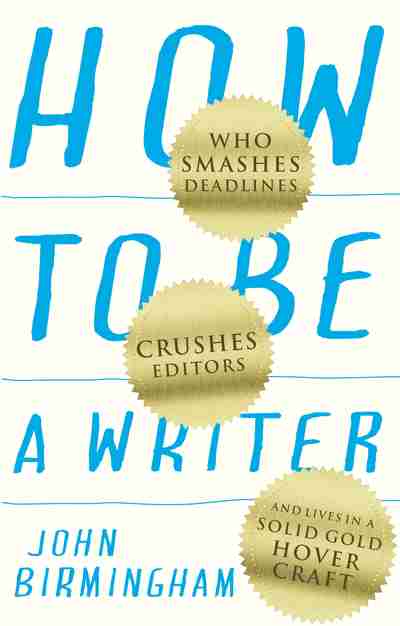 DBC Pierre’s writing book is like his fiction – a bit bizarre, purplish, chaotic, and often brilliant. Release the Bats is inspirational, making it clear that anyone can be a writer regardless of circumstance, and that literature is all about the interplay of worlds (internal/external; the gap between chaos and the ideal). The book provides a welter of ideas and tools and does so in a surprisingly coherent manner. It’s surprising because the book has a tendency to ramble, philosophise in extended and often convoluted metaphors, explode into digression, and slide into memoir, with Pierre using his own experiences as an example of how and in what ways his tools work.
DBC Pierre’s writing book is like his fiction – a bit bizarre, purplish, chaotic, and often brilliant. Release the Bats is inspirational, making it clear that anyone can be a writer regardless of circumstance, and that literature is all about the interplay of worlds (internal/external; the gap between chaos and the ideal). The book provides a welter of ideas and tools and does so in a surprisingly coherent manner. It’s surprising because the book has a tendency to ramble, philosophise in extended and often convoluted metaphors, explode into digression, and slide into memoir, with Pierre using his own experiences as an example of how and in what ways his tools work.
Category: Books for writers
A review of The Writers Room by Charlotte Wood
 Most of the writers interviewed came across as incredibly generous, surprisingly humble, and warm and accessible. Wood allowed the writers to approve their interviews before they went to print, and the resulting transcripts are beautifully readable, smooth and lucid, without losing any of the candid nature of the conversations, or the intimacy. I felt, above all, that the information provided in these interviews was a tremendous act of generosity – not just in terms of authors sharing their best tricks, their struggles and their visions, but also because of the way these discussions draw the reader almost directly into the writing process.
Most of the writers interviewed came across as incredibly generous, surprisingly humble, and warm and accessible. Wood allowed the writers to approve their interviews before they went to print, and the resulting transcripts are beautifully readable, smooth and lucid, without losing any of the candid nature of the conversations, or the intimacy. I felt, above all, that the information provided in these interviews was a tremendous act of generosity – not just in terms of authors sharing their best tricks, their struggles and their visions, but also because of the way these discussions draw the reader almost directly into the writing process.
A review of How to get Great Book Reviews Frugally and Ethically by Carolyn Howard-Johnson
 Frugality is Howard-Johnson’s stock-in-trade, and since none of her suggestions involve a large outlay, I’d say that picking up a copy of this book is about the most frugal and valuable thing a new author can do in order to generate inexpensive and highly credible publicity. The book is easy to read, and rich with Howard-Johnson’s own considerable experience. Above all, I think the point that she makes about treating the acquiring of reviews, not as an ancillary activity, but an integral part of the promotional campaign and one that cannot be skimped on, is key.
Frugality is Howard-Johnson’s stock-in-trade, and since none of her suggestions involve a large outlay, I’d say that picking up a copy of this book is about the most frugal and valuable thing a new author can do in order to generate inexpensive and highly credible publicity. The book is easy to read, and rich with Howard-Johnson’s own considerable experience. Above all, I think the point that she makes about treating the acquiring of reviews, not as an ancillary activity, but an integral part of the promotional campaign and one that cannot be skimped on, is key.
A review of How to Be a Writer by John Birmingham and Use Your Words by Catherine Deveny
 In How to Be a Writer, he is free with the swearing and the sexual metaphors, but also with solid advice about tackling writerly problems and going about making a living out of writing. The first part of the book deals with issues such as finding your voice as a writer, the need to specialise in the ever-changing world of publishing, getting a routine established (just not one like Hunter S Thompson’s, too much cocaine), and using technology to your advantage.
In How to Be a Writer, he is free with the swearing and the sexual metaphors, but also with solid advice about tackling writerly problems and going about making a living out of writing. The first part of the book deals with issues such as finding your voice as a writer, the need to specialise in the ever-changing world of publishing, getting a routine established (just not one like Hunter S Thompson’s, too much cocaine), and using technology to your advantage.
A review of Review of Researching Creative Writing by Jen Webb
 This is a book that has the potential to help creative writers ‘make knowledge festive’ in the process of creating their research projects. It is structured logically so as to make for optimal comprehension. It is superbly written and gives exciting examples of writers and books that illustrate the process of researching creative writing and writing as research.
This is a book that has the potential to help creative writers ‘make knowledge festive’ in the process of creating their research projects. It is structured logically so as to make for optimal comprehension. It is superbly written and gives exciting examples of writers and books that illustrate the process of researching creative writing and writing as research.
A review of Big Magic by Elizabeth Gilbert
 Gilbert’s book – so full of soundbites it’s almost impossible not to begin quoting it immediately – urges readers to pursue a creative life, without becoming bogged down by questions of talent, and by all-pervasive fear. Creativity is its own end, and Gilbert suggests that it’s the birthright of all human beings. So clear and compelling is Gilbert’s argument, that, after reading Big Magic, it feels greedy not to write; guilty not to paint; wrong to let one’s creativity submerge into the busyness of life’s daily demands.
Gilbert’s book – so full of soundbites it’s almost impossible not to begin quoting it immediately – urges readers to pursue a creative life, without becoming bogged down by questions of talent, and by all-pervasive fear. Creativity is its own end, and Gilbert suggests that it’s the birthright of all human beings. So clear and compelling is Gilbert’s argument, that, after reading Big Magic, it feels greedy not to write; guilty not to paint; wrong to let one’s creativity submerge into the busyness of life’s daily demands.
A review of Writing Wild by Tina Welling
 Tina Welling wrote Writing Wild: Forming a Creative Partnership with Nature, to share an insight she had while hiking near her home in Jackson Hole, Wyoming, a location which attracts visitors from all over because of its magnificent scenery and wildlife. While walking, she experienced “the interconnectedness between the earth’s creative energy and [her] own personal creative energy.” Since then, Welling takes “spirit walks” in nature to replenish her resources and let the earth’s energy provide insights and answers.
Tina Welling wrote Writing Wild: Forming a Creative Partnership with Nature, to share an insight she had while hiking near her home in Jackson Hole, Wyoming, a location which attracts visitors from all over because of its magnificent scenery and wildlife. While walking, she experienced “the interconnectedness between the earth’s creative energy and [her] own personal creative energy.” Since then, Welling takes “spirit walks” in nature to replenish her resources and let the earth’s energy provide insights and answers.
A review of Fast Fiction: A Guide to Outlining and Writing a First-Draft Novel in Thirty Days by Denise Jaden
 The book is designed to be used in a kinaesthetic way – through practical exercises that take the writer from the brainstorming of story ideas through to a three-act plot, writing a workable synopsis, creating characters, working up dialogue, themes, setting, building conflict, using symbols, setting scenes, and working up a cohesive story plan (call it an outline if you want). All of these are elements of good fiction, and Jaden covers them in a surprising amount of detail and in a way which is not facile at all.
The book is designed to be used in a kinaesthetic way – through practical exercises that take the writer from the brainstorming of story ideas through to a three-act plot, writing a workable synopsis, creating characters, working up dialogue, themes, setting, building conflict, using symbols, setting scenes, and working up a cohesive story plan (call it an outline if you want). All of these are elements of good fiction, and Jaden covers them in a surprising amount of detail and in a way which is not facile at all.
A review of The Frugal Book Promoter by Carolyn Howard-Johnson
 Ignore this kind of stuff and unless you win some kind of book lotto, your book will almost certainly fall into the obscurity that is an ever-present risk of modern authordom. What I like best about Howard-Johnson’s book is the simple, informal prose which is both warmly reassuring (‘of course you can do this’), and deceptively intelligent. The reader is encouraged and reminded of his or her own innate capabilities even as they’re goaded onto to raising the bar.
Ignore this kind of stuff and unless you win some kind of book lotto, your book will almost certainly fall into the obscurity that is an ever-present risk of modern authordom. What I like best about Howard-Johnson’s book is the simple, informal prose which is both warmly reassuring (‘of course you can do this’), and deceptively intelligent. The reader is encouraged and reminded of his or her own innate capabilities even as they’re goaded onto to raising the bar.
A review of Kicking in the Wall by Barbara Abercrombie
 Could a full-length novel result from an accumulation of five minute exercises? Maybe an episodic one. Of the seventeen “Student Contributors” whose exercises Abercrombie includes, only two are working on novels; the others are working on memoirs.
Could a full-length novel result from an accumulation of five minute exercises? Maybe an episodic one. Of the seventeen “Student Contributors” whose exercises Abercrombie includes, only two are working on novels; the others are working on memoirs.